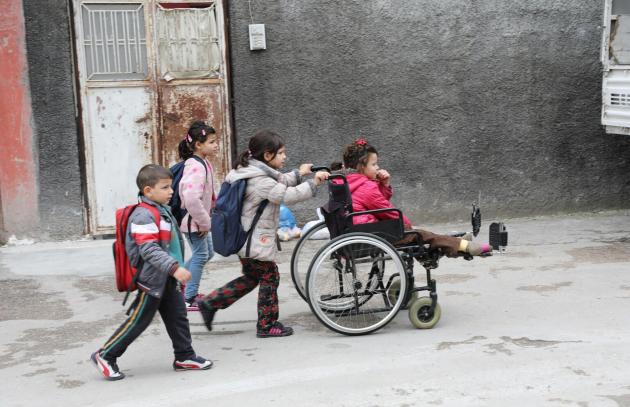c20unicef_un0177797_ergen_preview_jpeg.jpg

By Jim Ackers, Head of Training, IIEP-UNESCO
Children with disabilities are one of the most excluded groups in education. Universal school design, adapted learning materials, and better data are all crucial. However, the key to effective learning lies especially with teachers.
As far as possible, every child should be able to learn in his or her local school regardless of the child’s individual characteristics. ‘Segregated’ and ‘integrated’ approaches to disability should be avoided, or phased out. However, many countries are so far from this ideal that we need to approach the challenge through the progressive realisation of every child’s right to inclusive education, as described in Article 4 of the Convention of the Rights of People with Disabilities (CRPD). One key strategy also mentioned in Article 4 of the CRPD is to ‘promote the training of professionals and staff working with persons with disabilities … so as to better provide the assistance and services guaranteed by those rights.’
Teacher education is key to making inclusive education systems possible. However, as highlighted in the recent July 2018 IIEP and UNICEF technical Round Table on disability-inclusive educational planning, teacher education around inclusive education remains a major obstacle at the country level. Adding to this challenge is the bleak assessment of the impact of teacher education in enhancing education outcomes in some recent global reports. However, this should only be an argument for doing teacher education better.
Some research has indicated that teacher education in developing countries lacks impact because both the quality and reach are inadequate. Consequently, many teachers are unable to address the learning needs of individuals within their classes, especially when faced with large class numbers. In many countries, there is a lack of linkage between initial teacher training, which can be didactic and theoretical, and classroom realities. To enhance effectiveness, teacher education needs to be addressed through a Continuous Professional Development approach, with school-based practice and mentoring components. A key starting point must be to ensure that initial teacher education equips teachers to understand and address the different needs of children, including those with disabilities.
At IIEP, the key challenge is to identify and address the implications of making schools more inclusive across the whole education system. We need to ensure that sector plans address issues like teacher supply through an inclusive lens and respond to questions, such as: ‘are there sufficient classroom support assistants and special needs teachers, and are they distributed effectively?’ We also need to look at the role of other key actors, such as district officials, including the relationships inspectors and advisers have with their communities.
The challenges are significant, but the Round Table, which developed a framework for mainstreaming inclusive education that will inform new IIEP training courses, found that several countries were making progress. Co-organised with UNICEF, the Round Table explored successes and challenges in inclusive education in eight countries from across Anglophone Africa and Asia Pacific (a Round Table for Francophone countries will follow in July 2019).
Finally, we must remember that differentiation in the classroom is critical if we are to address the learning needs of all children, including those with disabilities. Accommodating diverse learning needs lies at the heart of inclusive education, and indeed learning for all.





